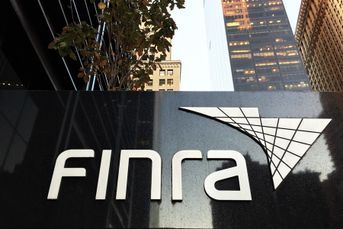TIC investments come back to bite
In the wake of the real estate bust, tenant-in-common investments are coming back to bite the broker-dealers that…
In the wake of the real estate bust, tenant-in-common investments are coming back to bite the broker-dealers that sold them when times were booming.
Investors recently have won a series of Financial Industry Regulatory Authority Inc. arbitration awards stemming from TIC exchanges, which involve tax-deferred swaps of property ownership interests. The majority of investors' arbitration awards stem from the sale of TICs and other products from one sponsor, DBSI Inc., which packaged and sold about 140 different deals and raised close to $1 billion before declaring bankruptcy in 2008.
Investors have filed Finra arbitration claims for $12.6 million in cases involving direct broker-dealer sales of TIC deals from DBSI, according to research from Securities Arbitration Commentator and InvestmentNews reports. Since June 2010, arbitration panels have awarded investors $4.8 million in those cases.
In a few arbitration claims in-volving DBSI, investors were given no award.
Whether the successful claimants see any of that money anytime soon is another question.
Meanwhile, other broker-dealers have confidentially settled some DBSI claims, attorneys and consultants said.
And TICs involving DBSI aren't the only real estate deals that are costing broker-dealers money in arbitration awards. LPL Financial LLC is on the hook for a $1.4 million arbitration award to an elderly couple from San Diego who bought two real estate deals.
The couple, Heinrich and Araceli Hardt, bought two TIC exchanges, one in 2007 and another in 2008, from former LPL broker David Glenn, according to a lawsuit the investors have filed against the sponsor of the real estate deals, Direct Invest LLC. The Hardts had sought $8 million in damages.
In their Finra claim, the Hardts, both 76, accused LPL of federal securities fraud and elder abuse. The Hardts also filed claims against two other broker-dealers, Meridian Capital Partners and Orchard Securities LLC, but dismissed those claims in December.
In the award, issued Feb.10, the panel didn't elaborate on its findings.
“While we do not know the factual or legal basis for this award, the arbitration panel did not make a finding of elder abuse in this matter,” said Michael Herley, a spokesman for LPL. “Given the amount of the award in comparison to the alleged damages, we believe that the arbitrators rejected many, if not most, of the claimants' claims.”
TICs are a form of real estate ownership in which two or more parties have a fractional interest in a property. TIC exchanges became popular after a favorable 2002 Internal Revenue Service ruling that allowed investors to defer capital gains on real estate transactions involving the exchange of properties.
After the real estate bubble burst, many TIC investors saw their properties fall in value.
One plaintiff's lawyer who has worked on several DBSI investor claims against broker-dealers was critical of firms' due diligence for those deals.
“It's remarkable to me that the broker-dealers think they can handle their clients this way, by allowing a Ponzi scheme to be sold and essentially assisting in its sale without complying with specific rules that Finra has set up for due-diligence obligations,” said David Lefkowitz, a partner at the Wilshire Palisades Law Group. Broker-dealers “allowed prospectuses and documents to go out [to investors] without minimal due diligence about central representations to the deal,” he said.
The high commissions — in the range of 7% — were the biggest incentive to brokers to sell DBSI products, Mr. Lefkowitz said.
“When you look at the commission structure on [DBSI], the broker is making so much money on a limited-time investment. The incentives to turn a blind eye are huge,” Mr. Lefkowitz said.
He declined to comment specifically on any investor claims against broker-dealers involving DBSI.
Mr. Lefkowitz has handled about half a dozen claims involving DBSI, and each has settled confidentially.
He also noted that only about 100 broker-dealers sold DBSI investments, meaning that the vast majority of Finra broker-dealers didn't.
Rick Chess, the immediate past president and a member of the Real Estate Investment Securities Association's board, didn't return phone calls to respond to criticisms of TIC sales practices.
TROUBLE COLLECTING
Investors who win in arbitration aren't guaranteed to see any money.
Some of the broker-dealers that have lost DBSI arbitration cases are no longer in business, and attorneys said that there is little chance that such firms will pay up.
For example, a Finra arbitration panel ordered a $9.1 million default judgment in a case that involved DBSI against Capwest Securities Inc., which closed last year.
The cause of the complaint related to the claimants' investments in the “big three” of private placement failures that have wiped out dozens of independent broker-dealers. They are Medical Capital Holdings Inc. and Provident Royalties LLC, both of which the Securities and Exchange Commission has said were fraudulent, as well as DBSI Inc.
In such situations, “clients are adversely affected,” said Stephen Krosschell, an attorney with Goodman & Nekvasil PA.
Meanwhile, the former president of DBSI, Douglas Swenson, was charged in 2009 by the Idaho Department of Finance with allegedly creating a scheme to defraud investors. DBSI was based in Idaho.
That case hasn't officially progressed against Mr. Swenson, even though the filing of it kick-started various actions that led to DBSI's being shut down, said Marilyn Chastain, the securities bureau chief for the Idaho Department of Finance.
According to a story this month in the Idaho Statesman, Mr. Swenson could face charges of tax evasion, money laundering, racketeering and securities fraud.
Matt Carvalho, an attorney for Mr. Swenson, didn't return calls seeking comment.
Learn more about reprints and licensing for this article.








